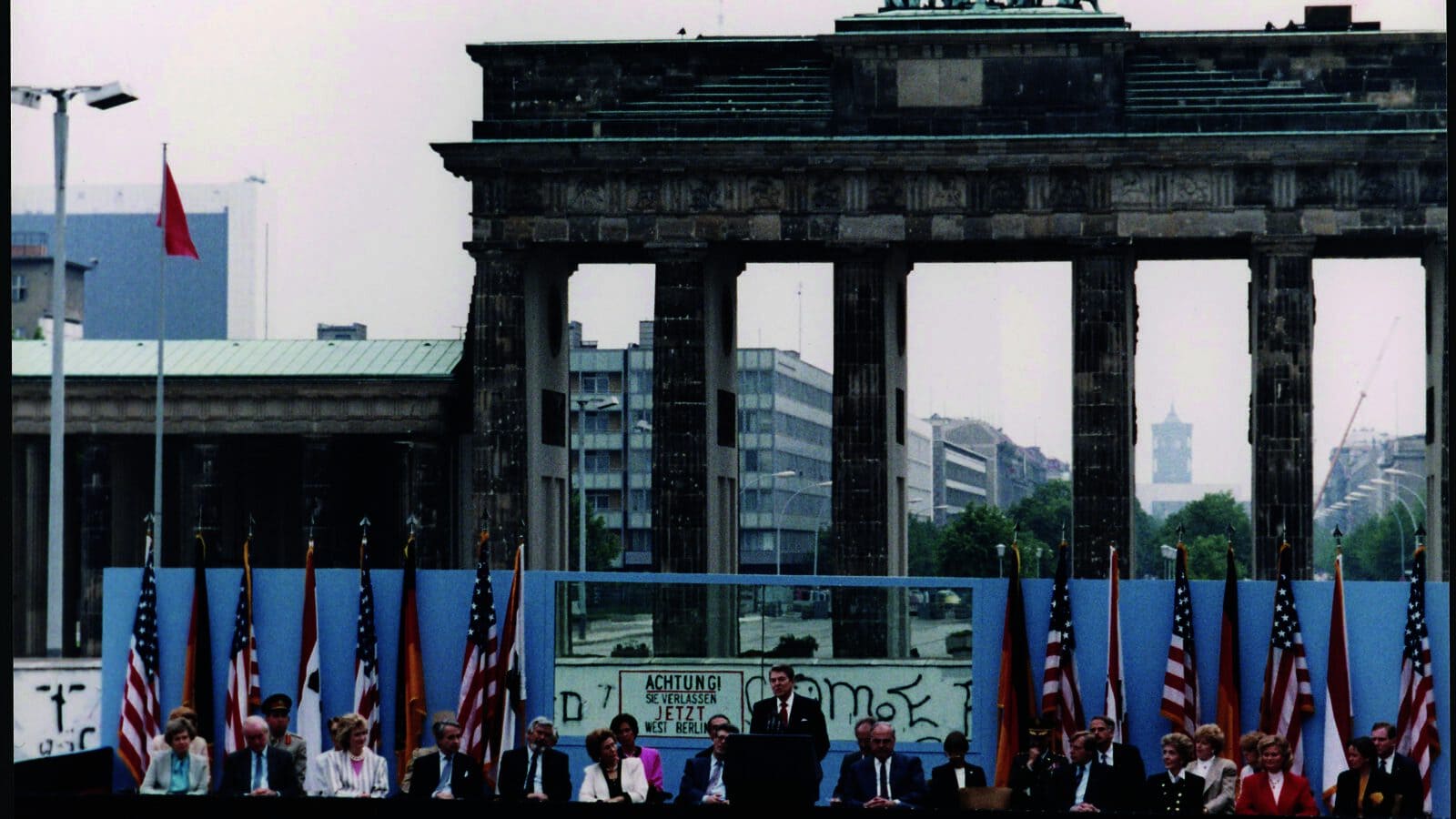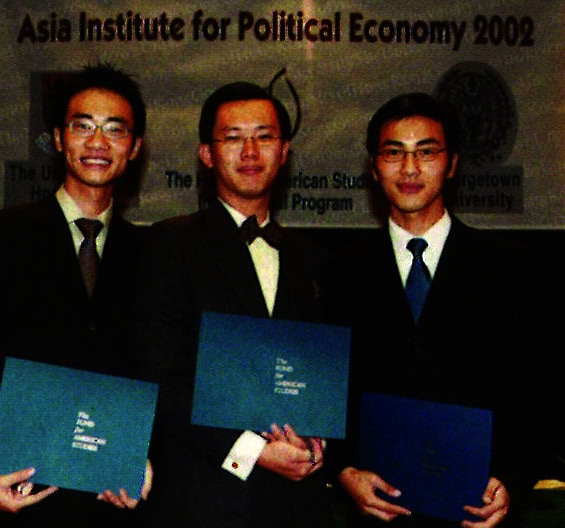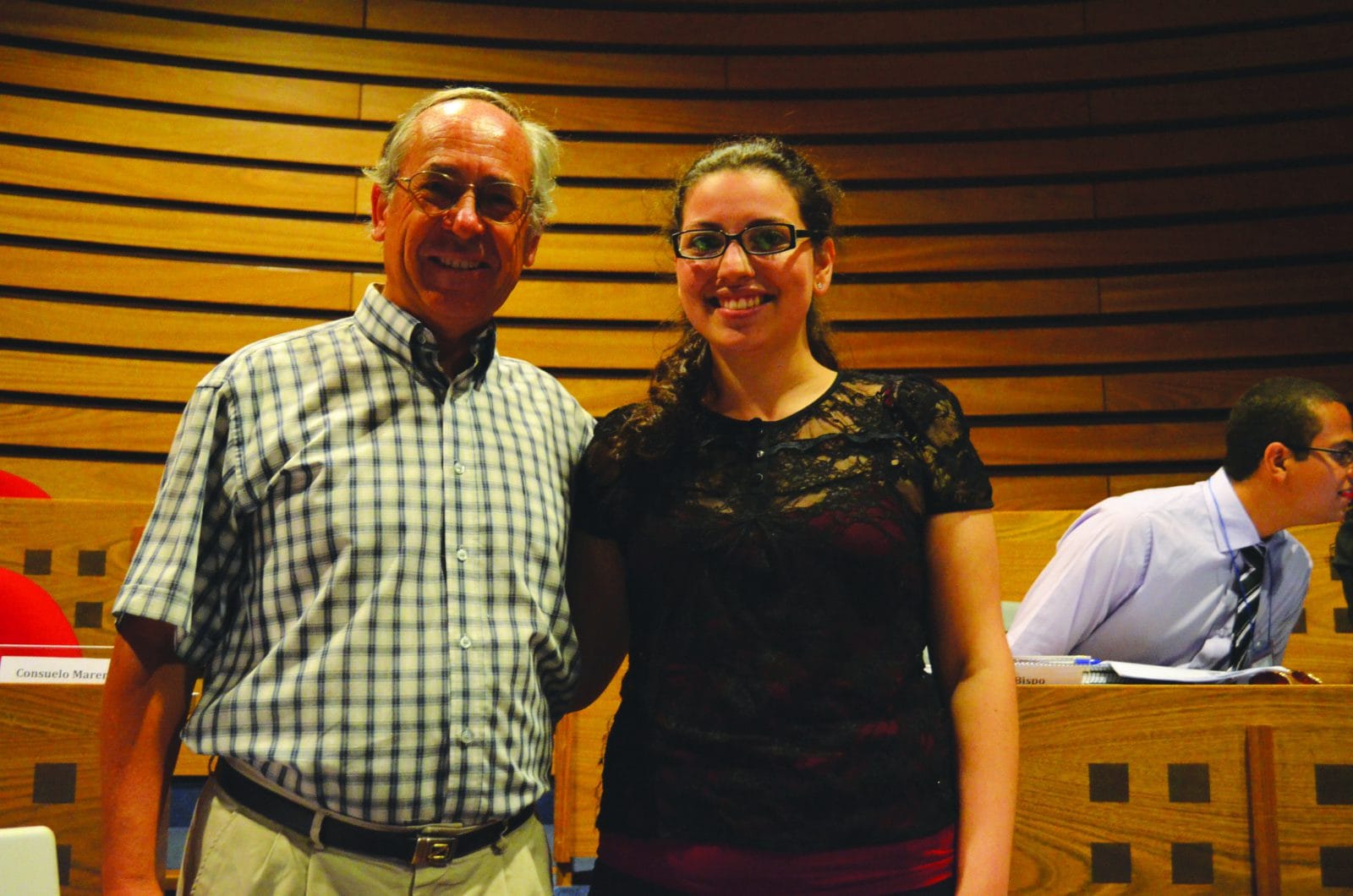
The following story is part two in a TFAS series on the 25th Anniversary of the fall of the Berlin Wall. To read part one, click here.
The fall of the Berlin Wall holds a special place in TFAS history, and not only because it symbolizes a triumph of freedom over oppression. It’s also significant because the wall’s demise ultimately allowed TFAS to fulfill one of its six founding objectives – to pursue opportunities for international programs that could plant the ideas of individual liberty abroad in places that had historically provided the least fertile soil. When the wall finally came down in 1989, TFAS began recruiting students from former Soviet Bloc countries and laying the foundation to build its international program abroad.
As we approach the 25th Anniversary of the Fall of the Berlin Wall, TFAS will take a look back at the lessons from the wall and the steps that must be taken to ensure that another symbol of tyranny is not rebuilt in its place.
After the Fall: Building TFAS International Programs

When TFAS was founded in 1967, it was ahead of its time as not many organizations were focused internationally during that period. It was only with the help of a small group of supporters interested in expanding TFAS’s mission that we were able to start our international programs after the upheaval and fall of the berlin wall in 1989.
To launch the program, TFAS began first by bringing students from former Soviet Bloc countries to our DC-based programs. Then, in the early 1990s, TFAS began work in Prague with students from Central and Eastern Europe. Very few young people in the former Soviet bloc had any formal education about the U.S., particularly our political and economic systems. Our program at Charles University and later in Greece for students from the Middle East, addressed this problem by recruiting ambitious young people and putting them through an intensive three-week academic program that also included a variety of co-curricular activities.
In 2002, we developed the Asia Institute for Political Economy (AIPE) at the University of Hong Kong, because it had become possible to reach emerging leaders in mainland China and countries such as Cambodia, Vietnam and Nepal. Hong Kong was ideal, as it has consistently ranked as the freest economy in the world. Plus, the University of Hong Kong was an enthusiastic partner with connections in mainland China that could serve as a recruitment network.
In recent years, we have determined that one of the real opportunities in the region is to work with organizations in smaller countries (Nepal, Vietnam, Cambodia and elsewhere) on two levels. We ask these organizations to recruit promising students for us and send them to AIPE, and we send our professors to visit these countries and teach a broader population about the ideas of civil society, limited government and free-market economies. We are confident we can have greater impact in Asia if we have more resources. There are other people we have identified who have expertise that is needed in Nepal, Cambodia and elsewhere in the region. And we have begun to identify and recruit promising new students by sponsoring essay contests around the world.

The Institute for Leadership in the Americas (ILA), started in 2008, has garnered TFAS a foothold in Latin America, where nearly 300 students have been given the tools to defend freedom in a region where it has been under attack since the rise of Hugo Chavez and his successor. Since that auspicious start in Santiago, Chile, ILA alumni have since started free-market think tanks, been elected to office, started new political parties based on free market principles and become columnists for major newspapers.
These outstanding alumni are fulfilling the vision of the TFAS founders, who saw the need for planting the seeds of individual freedom in the minds of young, active students who, as they rose through the ranks of business, government and academia, would spread these ideas throughout the rest of society. As the number of TFAS alumni grows internationally, we are fulfilling our founders’ vision of increasing the spread of liberty.
America’s role in the world, and concomitantly, the international strength of individual freedom and the rule of law, is facing the greatest challenge since the Berlin Wall crumbled in 1989. As Ronald Reagan, Margaret Thatcher and Pope John Paul II showed, individuals committed to freedom in the world, when placed in positions of responsibility, can make the difference between liberty and tyranny. Your support for TFAS’s international programs will help us continue to identify and educate students who will become “force multipliers” for freedom, and will one day lead the fight to spread individual liberty throughout the world.
This is part two in a TFAS series on the 25th Anniversary of the fall of the Berlin Wall. To read part one, click here.

